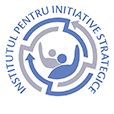Second regional dialogue: what are the participants’ recommendations on improving social cohesion and interethnic relations

The Institut für Europäische Politik based in Berlin (IEP), in partnership with the Institute for European Policies and Reforms (IPRE) and the Institute for Strategic Initiatives (IPIS) organized on May 24-25, the second regional dialogue in the framework of the project “Promoting civil society and interethnic dialogue in the Republic of Moldova in the context of the EU association process (CIVID)”.
The event was attended by 40 participants from different regions of the Republic of Moldova, as well as representatives of different ethnic groups. The event was also attended by young people, experts from civil society, academic and business environment, as well as representatives of central and local public authorities. The purpose of the event was to generate a discussion on strengthening the dialogue between ethnic groups and to identify practical solutions in various fields such as education, access to media, social rights and economic development and Association Agreement with the EU.
In his opening remarks, Vlad Kulminski, Executive Director, Institute for Strategic Initiatives (IPIS), spoke about the importance of social cohesion and the problems faced by various ethnic groups in Moldova. At the same time, Viktoria Palm, IEP Project Manager, mentioned the contribution that ethnic groups can bring in order to build a strong state, but has also reviewed the activities of the project over the past year.
Tatiana Levandovscaia, consultant within the Agency for Interethnic Relations, talked about the role of the authorities in improving interethnic relations in Moldova, and Ruslan Stanga, Executive Director, Institute for Rural Initiatives, briefly discussed the results of a study underlining the intolerance towards some ethnic groups. At the same time, Sergiu Conovalu, Program Coordinator, High Commissioner for OSCE National Minorities, spoke about the OSCE’s efforts in the area of interethnic cohesion in Moldova.
On the second day of the event, the participants were divided into four groups. A facilitator was assigned to each of the four tables, who for one hour sought solutions and recommendations for one of the four themes: education (moderated by Iulia Belanciuc, Principal Consultant, Ministry of Education, Culture and Research); economic development and social rights (moderated by Vadim Pistrinciuc, project expert, IPIS); Association Agreement with the European Union (moderated by Vitalie Ponomariov, historian, Cahul) and media (moderated by Maria Levcenco, expert, IPIS).
The purpose of this exercise was to identify the problems and measures that need to be implemented to strengthen interethnic relations. Below are some of the most important conclusions of the debates:
- In order to change the situation in the field of education, the following ideas should be implemented: ensurement of the linguistic diversity; introduction into the school curricula the history of ethnicities that reside on the territory of the Republic of Moldova; introduction of the multilingual education system; improvment of teacher’s training; creation of a fund for the promotion of the state language; initiation of a laboratory for textbook testing for learning Romanian language in schools which do not have Romanian as the education language;
- At the socio-economic level, the participants came to the conclusion that it is necessary to implement the following recommendations: increase the responsibilities and professional conduct of civil servants; introduction of human rights trainings module; development of information and awareness campaigns; establishment of a referral mechanism; development of targeted ethnic programs;
- In the field of media, it is necessary to develop mechanisms for reducing the speech hate phenomenon, development of alternative media (eg Vlogging), development of quality content and mechanisms for the reduction of false news and development of a deontological guide for mass-media;
- The following intervention mechanisms are needed to change the perception of the role of the EU-Moldova Association Agreement: improvement of the implementation of the Agreement; increased the awareness among citizens about the benefits of working with the EU; organization of sessions on the benefits of the Association Agreement; creation of information centres in all rayons of the country; facilitation of links between different ethnicities on the “People to People” model; empowerment of local actors.
The event was organized in the framework of the project “Promoting civil society and interethnic dialogue in the Republic of Moldova in the context of the EU association process (CIVID)”, with the support of the German Federal Foreign Office.
The project is implemented over the course of 12 months and it aims to improve social harmony, at regional level by encouraging public discourse and development of public policy proposals for integration of ethnic groups, as well as by supporting the implementation of the National Strategy of consolidating interethnic relations in the Republic of Moldova. The planned activities include public debate, workshops and TV debate in regions such as in Soroca and Taraclia. At the end of the project, experts will come up with policy recommendations for improving the legal framework for the integration of ethnic minorities.












 Română
Română Русский
Русский